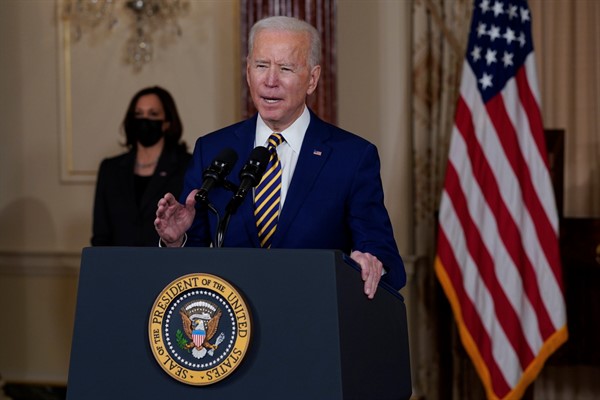In his first foreign policy address as president, delivered last week at the State Department, Joe Biden drew the curtain on the disastrous Trump era, rededicating the United States to repairing its tattered alliances, reengaging the world and defending freedom. “We are ready to take up the mantle of global leadership yet again,” he declared. “America is back. Diplomacy is back at the center of our foreign policy.”
The most novel aspect of Biden’s plainspoken speech was how he erased any clear distinction between foreign and domestic policy. The nation’s strength at home determines its success abroad—and vice versa. But there were still two lingering questions. First, are others are prepared to follow America’s lead, particularly in defending freedom, when its own democratic experiment is so tarnished? Second, can Biden reconcile his democracy promotion agenda with the need for practical cooperation with rivals in China and Russia on shared global challenges?
Biden advanced a foreign policy vision diametrically opposed to his predecessor’s cynical, nationalist, nativist and sovereigntist predilections, which had injured America’s interests and perverted its values. “America cannot afford any longer to be absent on the world stage,” Biden said. It must lead the world in resisting “advancing authoritarianism,” particularly from China and Russia, while addressing the “accelerating global challenges” that define our interconnected age, “from the pandemic to the climate crisis to nuclear proliferation.”

